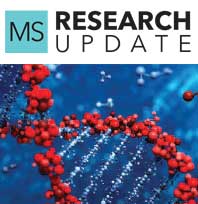Ublituximab

In this Update
FDA-Approved Medications: Recently Approved
Experimental Medications: Monoclonal Antibodies
Company: TG Therapeutics
- Given via IV infusion
- Being studied in RMS
Previous: Ofatumumab | Next: Opicinumab
Results from two simultaneous Phase III clinical trials testing the effectiveness of ublituximab for slowing disease progression in people with relapsing forms of MS (RMS) are expected to be released later in 2020.15
The ULTIMATE I and ULTIMATE II studies are randomized, double-blind, 2-year studies involving 1,094 adults with RMS. The study population reflects the typical real-world caseload of individuals with MS based on its history of relapse and existence of lesions shown via magnetic resonance imaging (MRI). Participants range in age from 18 to 55 years, and approximately two-thirds are women. 58, 21, 15
Participants have been receiving a one-hour IV infusion of ublituximab at 450 milligrams every 24 weeks plus a daily placebo tablet, or oral Aubagio at 14 milligrams daily plus a twice-yearly sham (placebo) IV infusion. Neither the researchers nor the participants know which of the two treatments is active and which is placebo. Improvements in annualized relapse rates, a commonly used measurement of disease activity, will be used to determine the effectiveness of ublituximab in slowing or preventing neurologic damage.59
Similar to the disease-modifying therapies (DMTs) Ocrevus and Rituxan, ublituximab is a monoclonal antibody that targets the CD20 antigen on the surface of B lymphocytes, a type of white blood cell. Lymphocytes can trigger an abnormal immune response that damages the protective sheath (myelin) that protects nerve cells in the brain and spinal cord. By binding to CD20, ublituximab is believed to initiate a process that destroys lymphocytes and slows neuronal damage.59 Ublituximab employs antibody-dependent cellular cytotoxicity (ADCC), a type of immune reaction where target cells are coated with antibodies that attract white blood cells, which then kill the target cells.60 Ublituximab can be administered less frequently (twice annually) than other DMTs, and can be infused in one hour.15
Ublituximab showed robust efficacy in a prior Phase II clinical trial that tested six different dosages and infusion durations in 48 individuals with RMS. Forty-five participants from the Phase II clinical trial were then enrolled in a subsequent open-label extension. Among the findings:
- B cells were depleted by a median of 99% at four weeks into the original Phase II study and stayed at reduced levels throughout the trial.
- Infusion-related reactions occurred in only five patients (11%) in the extension study, and all reactions were mild.
- An annualized relapse rate of 0.07 was observed, and 93% of study participants were relapse-free at Week 48.
- Gadolinium-enhancing T1 lesions were eliminated at the initial study’s halfway point, and the volume of new or enlarging T2 lesions was reduced by 10% at study’s end.15, 58
